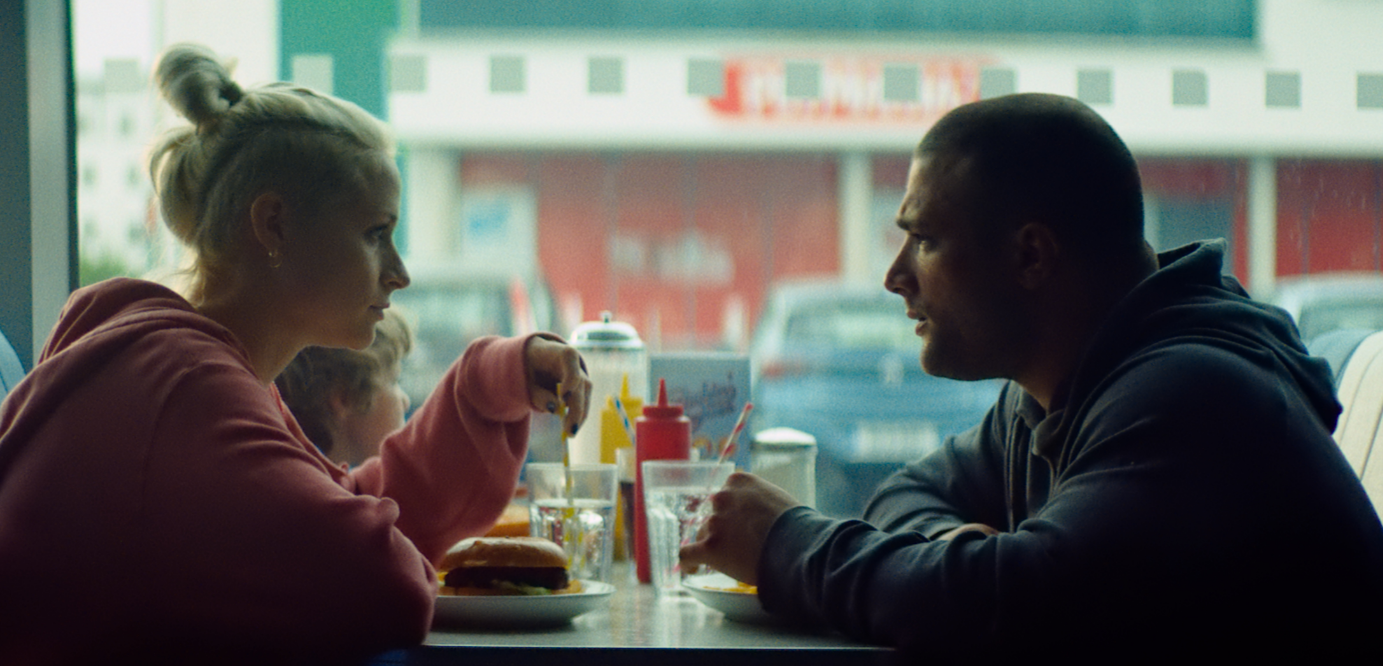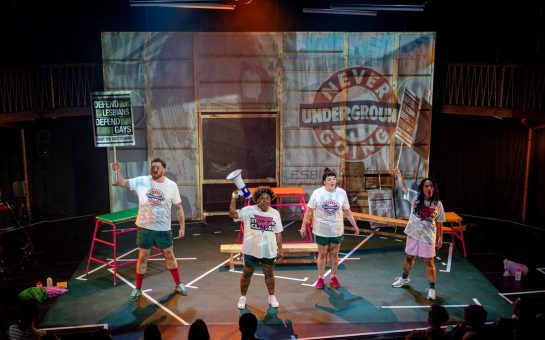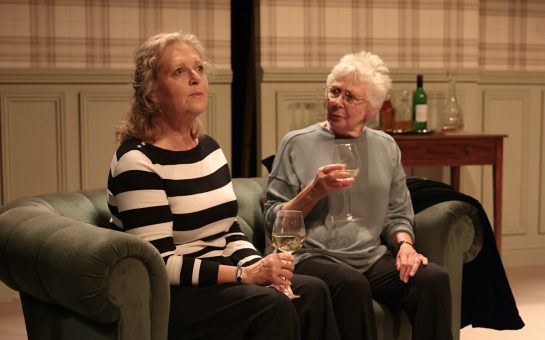Nick Rowland’s feature length debut is an unrelenting tale of split loyalties, taking the well trodden ground of choosing between your blood family or your chosen one and making it bracingly fresh.
The first words uttered in the film come from a voiceover by Douglas ‘Arm’ Armstrong (Cosmo Jarvis): “I’m told I was a violent child, usually to myself.”
It is a damning prognosis to open with, and one that sets the piece’s brutal pace.
Violent acts are simply a way of life for Arm, a retired boxer and now enforcer for the drug-dealing Devers family. Violence is the only way of making sense of the world, but when he’s asked to kill a man, his loyalties become stretched between the Devers and his own family.
His five-year-old son is autistic, and ex-partner Ursula (Niamh Algar) essentially raises him on her own, with Arm a distant figure in his child’s life. He is easing himself back into fatherhood when the fateful call comes, and his life quickly spirals into chaos.
Arm is a man of few words, but Jarvis acts with a physicality that screams out of the screen, his every emotion pours out in the way his body moves, as if trapped in the confines of his brutish physique, desperate to escape the violence it has bestowed upon him his whole life. He is soft and feeble with his son, but constantly carries an undercurrent of anger in his movements, as if violence is always just around the corner, and often it is.
Set on the west coast of Ireland in the fictional town of Glanbeigh, the small-town gang are enveloped by majestic cliffs and swooping valleys, the beauty on the outside a sharp juxtaposition to the dark acts that happen inside their homes.
Cigarettes are stubbed out on coffee tables and blood is splattered across 70’s-style wallpaper. A place out of time, the streets are empty and there’s no other sign of human life bar the gang’s associates. The lack of any outside world makes the life of crime that Arm is caught up in seem even more inevitable.
Despite the frequent violence on screen, Rowland perfectly controls what we are shown to stop us becoming desensitised. Jaws are broken and glasses are smashed on heads, but Rowland holds us at arm’s length when he has to, protecting us while waving his finger over the detonator, waiting for the right moment to let the tension explode.

Dympna Devers (Barry Keoghan) is his closest associate in the gang, his frosted tips haircut and jewellery sets him aside from the rest of the family, he is the next generation of the Devers and is desperate to prove his worth to his elders. Man of the town, with his boy-racer Toyota Corolla coughing and spluttering through the country roads, a scar against the idyllic scenery, but his swagger disappears when around his elders, particularly the haunting figure of Paudi Devers (Ned Dennehy).
Traditionally a girl’s name, Dympna seems to be in a ‘Boy Named Sue’ situation, his desperate need to prove himself coming from a deep-running inadequacy at not being seen as one of the Devers men. He treats Arm like a dog, clicking his fingers when he wants him to attack, forcing coke up his nose and dragging him anywhere at the drop of a hat. It’s not a friendship, but Arm views it as such, and Rowland excels in piping up tension between these power dynamics, blurring the lines of everyone’s loyalty to see whether blood really does run thicker than water.
The sound design puts us firmly in Arm’s head, a safe haven from the harsh cacophony of revved engines and barking dogs that surround him. The tension constantly ramps up, the anxiety-inducing nature of every decision made by Arm is similar to that of Howie Ratner (Adam Sandler) in Uncut Gems, except Arm is more aware of his self-destructive ways than Howie, and far more keen to escape them.
The film this feels closest to, however, is Shane Meadow’s brutal 2004 drama Dead Man’s Shoes, in that both are in essence Westerns set in small towns in the British Isles. Whilst Dead Man’s Shoes follows the old gun as he returns to town to get vengeance against the outlaws, Calm with Horses is more in the vein of the cowboy who tries to hang up his guns and leave town.
When Arm puts on an M60 jacket, the very same that Paddy Considine’s Richard wears in Dead Man’s Shoes, the similarities become even more clear, the leads carrying the same wild-eyed expression as they grow increasingly violent.
At the movie’s heart, beyond the bloodstained knuckles and choking on blood, Rowland has crafted a deeply nuanced portrait of a man trying to do right by his son, and its heart proves far bigger than its fists.
Calm with Horses is playing at HOME now.



